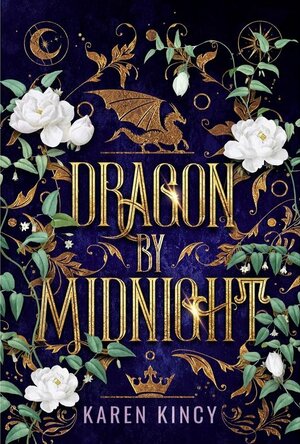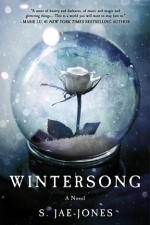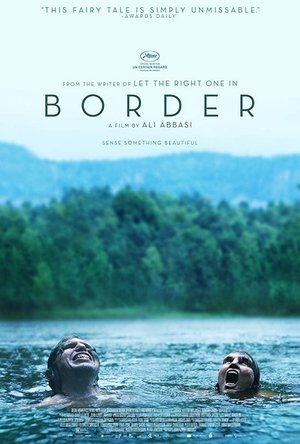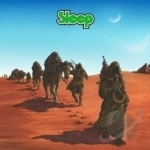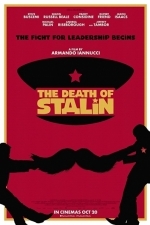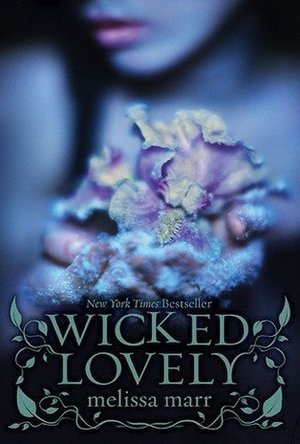Search
Lottie disney bookworm (1056 KP) rated Dragon By Midnight in Books
Aug 30, 2021
The concept of Dragon by Midnight immediately intrigued me: a Cinderella retelling where, at the stroke of midnight, Cinderella becomes a dragon and is hunted by Prince Charming? Yes please!
Karen Kincy had some bestseller-worthy ideas when it came to this book: I loved Sikandar's mysterious sorcerer vibe and dark past; the Jinni gave Arabian nights/Aladdin vibes and the plot twist of the curse was brilliant.
However, in my opinion, the major elements that made Dragon by Midnight great were just not developed enough and I was left with unanswered questions, in particular with Cinderella's story line.
Sikandar is bound to be everyone's favourite character and the description of him as a cinnamon roll hero is perfect. I would have liked him to keep his mystery for a bit longer and for the worthiness of his previous actions to be withheld instead of instantly revealed - it felt like he was a mysterious murderer one second and then an amazing hero the next . Although this was in keeping with the fast-paced nature of the story.
Similarly, the romance between Sikandar and Cinderella developed so quickly. She almost fell in love with him straight away! It was also very fluffy and cute: which is not a criticism! This is a YA book after all. However, sometimes Cinderella seemed too wrapped up in the cute boy and less concerned about ... well, being a dragon!
Prince Benedict Charming was brilliant in his arrogance and cringe worthiness. I did expect a bit more action and dragon-hunting from him though and his attitude towards Cinderella when she returned to the castle as a girl was very odd. I truly couldn't tell if he was so self-absorbed he didn't care what had happened, or if he was plotting something.
Overall I did enjoy Dragon by Midnight and read it within a day. It is a very cute, fast-paced fairytale with some genius ideas. The overly descriptive language and lack of character development would push it closer to the middle-grade side of YA for me but I enjoyed the story and will possibly pick up the sequel if I see it.
I received an advance review copy for free, and I am leaving this review voluntarily.
Karen Kincy had some bestseller-worthy ideas when it came to this book: I loved Sikandar's mysterious sorcerer vibe and dark past; the Jinni gave Arabian nights/Aladdin vibes and the plot twist of the curse was brilliant.
However, in my opinion, the major elements that made Dragon by Midnight great were just not developed enough and I was left with unanswered questions, in particular with Cinderella's story line.
Sikandar is bound to be everyone's favourite character and the description of him as a cinnamon roll hero is perfect. I would have liked him to keep his mystery for a bit longer and for the worthiness of his previous actions to be withheld instead of instantly revealed - it felt like he was a mysterious murderer one second and then an amazing hero the next . Although this was in keeping with the fast-paced nature of the story.
Similarly, the romance between Sikandar and Cinderella developed so quickly. She almost fell in love with him straight away! It was also very fluffy and cute: which is not a criticism! This is a YA book after all. However, sometimes Cinderella seemed too wrapped up in the cute boy and less concerned about ... well, being a dragon!
Prince Benedict Charming was brilliant in his arrogance and cringe worthiness. I did expect a bit more action and dragon-hunting from him though and his attitude towards Cinderella when she returned to the castle as a girl was very odd. I truly couldn't tell if he was so self-absorbed he didn't care what had happened, or if he was plotting something.
Overall I did enjoy Dragon by Midnight and read it within a day. It is a very cute, fast-paced fairytale with some genius ideas. The overly descriptive language and lack of character development would push it closer to the middle-grade side of YA for me but I enjoyed the story and will possibly pick up the sequel if I see it.
I received an advance review copy for free, and I am leaving this review voluntarily.
Goddess in the Stacks (553 KP) rated Wintersong in Books
Dec 27, 2018
So I knew this was inspired by Jim Henson's Labyrinth. That's partially why I picked it up, as I love that movie and David Bowie as the Goblin King. I didn't expect to get, basically, Labyrinth fanfiction. That was my first impression. As the book carries on, though, and especially as you get into the second book, it's more like a musician's fever-dream of their favorite childhood movie. There are so many elements taken from the movie, but they are deconstructed and put back together in such unexpected ways.
You'll recognize a line or two from the movie. The fairies still bite. The Goblin King is still beautiful and angular and strange. Liesl's after a stolen sibling. But Liesl and her family live in rural, probably 18th century Bavaria. She is not a spoiled, baby-sitting half-sister. Her grandmother has taught her the old stories, and unbeknownst to her, she's played music for The Goblin King her entire childhood.
The first book concerns Liesl's first foray into the Underground to save her sister when The Goblin King steals her to be his bride. This is where the acid trip starts. If you're familiar with Labyrinth, remember the ballroom scene? With people whirling about and appearing and disappearing and mirrors and the sense of disorientation as it all falls apart? Yeah, that's basically the entire time in the Underground. Though there is a ball scene, and it is especially trippy.
While Liesl manages to save her sister (that's a spoiler, but it isn't much of one), she has a harder time saving herself. Whether she actually does or not could be debated.
The second book of the duology, Shadowsong, has an interesting author's note in the front of it. The author first gives a content warning for self-harm, suicidal ideations, addiction, and reckless behaviors. She goes on to say Liesl has bipolar disorder, and further, that so does she. (The author.) She says Wintersong was her bright mirror, and Shadowsong her dark one. I can see that. Wintersong is a much happier book than Shadowsong, but the story would be incomplete without both books. Wintersong does end in a satisfactory conclusion, but Shadowsong just completes the tale in a way that I, at least, really enjoyed.
Shadowsong also contains more throwbacks to the movie - she falls and is caught by goblin hands; goblins form a giant face that talks to her about the old laws. These things don't happen in the same scene, though.
I loved the elements of music woven throughout the story; Liesl is a composer, and music - her music - is almost a character in its own right. It's definitely a huge plot element. It's in her connection to her brother, and her connection to The Goblin King. It's her way into the Underground, and her way out, and her way to reach back in.
It's an enchanting duology; I don't know if it would be as good for someone who didn't love Labyrinth the way I do. If you dislike the movie, I would probably advise against reading these. But if you like it or have simply never seen it, these would be good, atmospheric books to read in the dead of winter.
You can read all my reviews at http://goddessinthestacks.com
You'll recognize a line or two from the movie. The fairies still bite. The Goblin King is still beautiful and angular and strange. Liesl's after a stolen sibling. But Liesl and her family live in rural, probably 18th century Bavaria. She is not a spoiled, baby-sitting half-sister. Her grandmother has taught her the old stories, and unbeknownst to her, she's played music for The Goblin King her entire childhood.
The first book concerns Liesl's first foray into the Underground to save her sister when The Goblin King steals her to be his bride. This is where the acid trip starts. If you're familiar with Labyrinth, remember the ballroom scene? With people whirling about and appearing and disappearing and mirrors and the sense of disorientation as it all falls apart? Yeah, that's basically the entire time in the Underground. Though there is a ball scene, and it is especially trippy.
While Liesl manages to save her sister (that's a spoiler, but it isn't much of one), she has a harder time saving herself. Whether she actually does or not could be debated.
The second book of the duology, Shadowsong, has an interesting author's note in the front of it. The author first gives a content warning for self-harm, suicidal ideations, addiction, and reckless behaviors. She goes on to say Liesl has bipolar disorder, and further, that so does she. (The author.) She says Wintersong was her bright mirror, and Shadowsong her dark one. I can see that. Wintersong is a much happier book than Shadowsong, but the story would be incomplete without both books. Wintersong does end in a satisfactory conclusion, but Shadowsong just completes the tale in a way that I, at least, really enjoyed.
Shadowsong also contains more throwbacks to the movie - she falls and is caught by goblin hands; goblins form a giant face that talks to her about the old laws. These things don't happen in the same scene, though.
I loved the elements of music woven throughout the story; Liesl is a composer, and music - her music - is almost a character in its own right. It's definitely a huge plot element. It's in her connection to her brother, and her connection to The Goblin King. It's her way into the Underground, and her way out, and her way to reach back in.
It's an enchanting duology; I don't know if it would be as good for someone who didn't love Labyrinth the way I do. If you dislike the movie, I would probably advise against reading these. But if you like it or have simply never seen it, these would be good, atmospheric books to read in the dead of winter.
You can read all my reviews at http://goddessinthestacks.com
Goddess in the Stacks (553 KP) rated Shadowsong (Wintersong #2) in Books
Dec 27, 2018
So I knew this was inspired by Jim Henson's Labyrinth. That's partially why I picked it up, as I love that movie and David Bowie as the Goblin King. I didn't expect to get, basically, Labyrinth fanfiction. That was my first impression. As the book carries on, though, and especially as you get into the second book, it's more like a musician's fever-dream of their favorite childhood movie. There are so many elements taken from the movie, but they are deconstructed and put back together in such unexpected ways.
You'll recognize a line or two from the movie. The fairies still bite. The Goblin King is still beautiful and angular and strange. Liesl's after a stolen sibling. But Liesl and her family live in rural, probably 18th century Bavaria. She is not a spoiled, baby-sitting half-sister. Her grandmother has taught her the old stories, and unbeknownst to her, she's played music for The Goblin King her entire childhood.
The first book concerns Liesl's first foray into the Underground to save her sister when The Goblin King steals her to be his bride. This is where the acid trip starts. If you're familiar with Labyrinth, remember the ballroom scene? With people whirling about and appearing and disappearing and mirrors and the sense of disorientation as it all falls apart? Yeah, that's basically the entire time in the Underground. Though there is a ball scene, and it is especially trippy.
While Liesl manages to save her sister (that's a spoiler, but it isn't much of one), she has a harder time saving herself. Whether she actually does or not could be debated.
The second book of the duology, Shadowsong, has an interesting author's note in the front of it. The author first gives a content warning for self-harm, suicidal ideations, addiction, and reckless behaviors. She goes on to say Liesl has bipolar disorder, and further, that so does she. (The author.) She says Wintersong was her bright mirror, and Shadowsong her dark one. I can see that. Wintersong is a much happier book than Shadowsong, but the story would be incomplete without both books. Wintersong does end in a satisfactory conclusion, but Shadowsong just completes the tale in a way that I, at least, really enjoyed.
Shadowsong also contains more throwbacks to the movie - she falls and is caught by goblin hands; goblins form a giant face that talks to her about the old laws. These things don't happen in the same scene, though.
I loved the elements of music woven throughout the story; Liesl is a composer, and music - her music - is almost a character in its own right. It's definitely a huge plot element. It's in her connection to her brother, and her connection to The Goblin King. It's her way into the Underground, and her way out, and her way to reach back in.
It's an enchanting duology; I don't know if it would be as good for someone who didn't love Labyrinth the way I do. If you dislike the movie, I would probably advise against reading these. But if you like it or have simply never seen it, these would be good, atmospheric books to read in the dead of winter.
You can read all my reviews at http://goddessinthestacks.com
You'll recognize a line or two from the movie. The fairies still bite. The Goblin King is still beautiful and angular and strange. Liesl's after a stolen sibling. But Liesl and her family live in rural, probably 18th century Bavaria. She is not a spoiled, baby-sitting half-sister. Her grandmother has taught her the old stories, and unbeknownst to her, she's played music for The Goblin King her entire childhood.
The first book concerns Liesl's first foray into the Underground to save her sister when The Goblin King steals her to be his bride. This is where the acid trip starts. If you're familiar with Labyrinth, remember the ballroom scene? With people whirling about and appearing and disappearing and mirrors and the sense of disorientation as it all falls apart? Yeah, that's basically the entire time in the Underground. Though there is a ball scene, and it is especially trippy.
While Liesl manages to save her sister (that's a spoiler, but it isn't much of one), she has a harder time saving herself. Whether she actually does or not could be debated.
The second book of the duology, Shadowsong, has an interesting author's note in the front of it. The author first gives a content warning for self-harm, suicidal ideations, addiction, and reckless behaviors. She goes on to say Liesl has bipolar disorder, and further, that so does she. (The author.) She says Wintersong was her bright mirror, and Shadowsong her dark one. I can see that. Wintersong is a much happier book than Shadowsong, but the story would be incomplete without both books. Wintersong does end in a satisfactory conclusion, but Shadowsong just completes the tale in a way that I, at least, really enjoyed.
Shadowsong also contains more throwbacks to the movie - she falls and is caught by goblin hands; goblins form a giant face that talks to her about the old laws. These things don't happen in the same scene, though.
I loved the elements of music woven throughout the story; Liesl is a composer, and music - her music - is almost a character in its own right. It's definitely a huge plot element. It's in her connection to her brother, and her connection to The Goblin King. It's her way into the Underground, and her way out, and her way to reach back in.
It's an enchanting duology; I don't know if it would be as good for someone who didn't love Labyrinth the way I do. If you dislike the movie, I would probably advise against reading these. But if you like it or have simply never seen it, these would be good, atmospheric books to read in the dead of winter.
You can read all my reviews at http://goddessinthestacks.com
Acanthea Grimscythe (300 KP) rated I Am the Cheese in Books
May 16, 2018
If I were to judge a book by its title or cover, Robert Cormier's I Am the Cheese is definitely not a book that I would pick up. In fact, I probably would have gone my entire life without touching it if it weren't for the fact that one of my teachers assigned it for my class in Young Adult Literature. For that reason, I'm glad I took the class.
Like most of Cormier's books, I Am the Cheese is set in the town of Monument, Massachusetts. It is a fictional setting based on the author's own home town. In this story, the main character is Adam Farmer and doubles as my pick for PopSugar's 2017 Reading Challenge as a book with an unreliable narrator, because young Adam Farmer is precisely that: unreliable.
Adam Farmer grows up with a rather complicated life: his family is part of the early stages of the Witness Protection Program. They are relocated to Monument after his father uncovers deeply rooted corruption among government officials and, as a result, testifies against them. Having been young at the time, Adam only knows his life as it now and goes about his day to day business as any boy his age would. He meets and falls in love with a girl named Amy and one day decides to skip school and bike to Rutterberg, Vermont so that he can deliver a gift to his father, who is currently in the hospital. As Adam tells us his story of visiting his father, we are simultaneously introduced to him in the future, where he is currently under psychiatric care. There, he is urged to recover his memories via sessions with Brint. During these sessions, the reader learns more Adam and his family.
I really can't say a whole lot more about the book other than that without revealing spoilers, but what I can say is that this book has more twists and turns with sharp jerks than those little mini-coaster rides at a theme park. You know, the ones that leave you with bruises instead of making you scream with glee? Even better, these twists are rather dark in nature - more so than I would have expected for a book labeled Young Adult back in the 70s. It's extremely rare for me to find myself questioning elements of story throughout an entire book, but I Am the Cheese succeeded in doing just that.
Another interesting element to I Am the Cheese, and one of the many traits it shares with Post-Modernism literature, is the use of several different styles of writing within its pages. While the book has alternating perspectives, there is a clear distinction when each perspective changes: first person is from Adam's point-of-view; the interview transcripts are from recordings of Brint and Adam speaking; the final style is third-person limited, with most of its focus centered directly on Adam and what goes on around him.
I was also surprised to learn, via my instructor, that the number Adam calls to try and reach Amy was actually Cormier's personal phone number. He had put it in the book so that if readers called it, they would be able to speak with him - particularly during less happy moments in their life. That alone is deserving of kudos.
I Am the Cheese is undoubtedly one of my favorite Young Adult books and, as a result, I definitely plan to read more of Cormier's books, especially since many of them have startlingly dark themes.
Like most of Cormier's books, I Am the Cheese is set in the town of Monument, Massachusetts. It is a fictional setting based on the author's own home town. In this story, the main character is Adam Farmer and doubles as my pick for PopSugar's 2017 Reading Challenge as a book with an unreliable narrator, because young Adam Farmer is precisely that: unreliable.
Adam Farmer grows up with a rather complicated life: his family is part of the early stages of the Witness Protection Program. They are relocated to Monument after his father uncovers deeply rooted corruption among government officials and, as a result, testifies against them. Having been young at the time, Adam only knows his life as it now and goes about his day to day business as any boy his age would. He meets and falls in love with a girl named Amy and one day decides to skip school and bike to Rutterberg, Vermont so that he can deliver a gift to his father, who is currently in the hospital. As Adam tells us his story of visiting his father, we are simultaneously introduced to him in the future, where he is currently under psychiatric care. There, he is urged to recover his memories via sessions with Brint. During these sessions, the reader learns more Adam and his family.
I really can't say a whole lot more about the book other than that without revealing spoilers, but what I can say is that this book has more twists and turns with sharp jerks than those little mini-coaster rides at a theme park. You know, the ones that leave you with bruises instead of making you scream with glee? Even better, these twists are rather dark in nature - more so than I would have expected for a book labeled Young Adult back in the 70s. It's extremely rare for me to find myself questioning elements of story throughout an entire book, but I Am the Cheese succeeded in doing just that.
Another interesting element to I Am the Cheese, and one of the many traits it shares with Post-Modernism literature, is the use of several different styles of writing within its pages. While the book has alternating perspectives, there is a clear distinction when each perspective changes: first person is from Adam's point-of-view; the interview transcripts are from recordings of Brint and Adam speaking; the final style is third-person limited, with most of its focus centered directly on Adam and what goes on around him.
I was also surprised to learn, via my instructor, that the number Adam calls to try and reach Amy was actually Cormier's personal phone number. He had put it in the book so that if readers called it, they would be able to speak with him - particularly during less happy moments in their life. That alone is deserving of kudos.
I Am the Cheese is undoubtedly one of my favorite Young Adult books and, as a result, I definitely plan to read more of Cormier's books, especially since many of them have startlingly dark themes.
Lucy Buglass (45 KP) rated Border (2018) in Movies
Jun 20, 2019
If you’re a fan of the original super dark fairy tales, you’re probably going to love Border. But be warned, it contains some incredibly disturbing content that I wasn’t prepared for. This film is not an easy watch, and I found myself thinking about it for a long time afterwards. That’s not necessarily a bad thing, it just isn’t for the faint of heart.
The film follows Tina (Eva Melander), a woman who works for the Swedish Border Control. She has a unique talent to sniff out contraband, so she’s an asset to the rest of the team. This ability confuses many around her, and this becomes a central part of Tina’s self-discovery later on in the film. Alongside her ability, Tina suffers from facial deformities which makes her an outcast in society.
Tina’s life changes when she meets a man named Vore (Eero Milonoff), who looks just like her. At first, she suspects him of something, but following an inspection, lets him pass through. The two of them have frequent encounters throughout the film, with Vore helping Tina to understand who she is. As she’s embarking on this journey, Tina is assigned to a child pornography case, with the authorities believing her ability can help them find the perpetrator.
Border is dark both in its narrative and its visuals, as you seldom see the sunlight throughout the entire film. It feels gritty, dirty and bleak, reflecting this incredibly harrowing case that Tina has to try and solve. Even her own home is depressing; living in a tiny cabin-like home with a man named Roland who trains dogs. Tina’s relationship with Roland is confusing to the audience, and she barely spends any time at home, opting to take walks outside instead. She is an incredibly lonely, isolated character until Vore comes along.
The film’s visuals really stood out to me, I loved the ethereal fantasy elements even when bad things are happening. Since Tina spends a lot of her time outdoors, her encounters with wildlife and nature are beautifully shot. These moments seem to be the only ones that bring Tina real joy, and the cinematography reflects this. The film’s bleakness can often feel too much at times, but it’s entirely appropriate given the story. Despite Tina’s eventual self-discovery, this is not a happy film.
Tina and Vore’s animalistic behaviour may be uncomfortable for some audiences, and it was for me too. The film relies on long, purely diegetic scenes that bring us closer to the action than we may have liked. Their relationship is raw, functional and sometimes aggressive, often making it difficult to like the characters. Despite this, I still liked Tina as a character and wanted her to find happiness.
Border is just under two hours in length, but feels much longer due to Abbasi’s use of lingering shots. I did find myself feeling a little frustrated with this at times, but the beauty of the cinematography made up for it. The story is as twisted as it is captivating, and by the end of the film you’re left in a stunned silence trying to process what you just saw. It’s the kind of film that leaves you feeling exhausted afterwards.
This happened to be my first real exploration of Nordic cinema, and I’m certainly interested to see what other films are out there. Border is a unique and harrowing story that points fun at Nordic relations, and is certainly worth the watch. Having said that, I’m not sure I could go through it again.
https://jumpcutonline.co.uk/review-border-2019/
The film follows Tina (Eva Melander), a woman who works for the Swedish Border Control. She has a unique talent to sniff out contraband, so she’s an asset to the rest of the team. This ability confuses many around her, and this becomes a central part of Tina’s self-discovery later on in the film. Alongside her ability, Tina suffers from facial deformities which makes her an outcast in society.
Tina’s life changes when she meets a man named Vore (Eero Milonoff), who looks just like her. At first, she suspects him of something, but following an inspection, lets him pass through. The two of them have frequent encounters throughout the film, with Vore helping Tina to understand who she is. As she’s embarking on this journey, Tina is assigned to a child pornography case, with the authorities believing her ability can help them find the perpetrator.
Border is dark both in its narrative and its visuals, as you seldom see the sunlight throughout the entire film. It feels gritty, dirty and bleak, reflecting this incredibly harrowing case that Tina has to try and solve. Even her own home is depressing; living in a tiny cabin-like home with a man named Roland who trains dogs. Tina’s relationship with Roland is confusing to the audience, and she barely spends any time at home, opting to take walks outside instead. She is an incredibly lonely, isolated character until Vore comes along.
The film’s visuals really stood out to me, I loved the ethereal fantasy elements even when bad things are happening. Since Tina spends a lot of her time outdoors, her encounters with wildlife and nature are beautifully shot. These moments seem to be the only ones that bring Tina real joy, and the cinematography reflects this. The film’s bleakness can often feel too much at times, but it’s entirely appropriate given the story. Despite Tina’s eventual self-discovery, this is not a happy film.
Tina and Vore’s animalistic behaviour may be uncomfortable for some audiences, and it was for me too. The film relies on long, purely diegetic scenes that bring us closer to the action than we may have liked. Their relationship is raw, functional and sometimes aggressive, often making it difficult to like the characters. Despite this, I still liked Tina as a character and wanted her to find happiness.
Border is just under two hours in length, but feels much longer due to Abbasi’s use of lingering shots. I did find myself feeling a little frustrated with this at times, but the beauty of the cinematography made up for it. The story is as twisted as it is captivating, and by the end of the film you’re left in a stunned silence trying to process what you just saw. It’s the kind of film that leaves you feeling exhausted afterwards.
This happened to be my first real exploration of Nordic cinema, and I’m certainly interested to see what other films are out there. Border is a unique and harrowing story that points fun at Nordic relations, and is certainly worth the watch. Having said that, I’m not sure I could go through it again.
https://jumpcutonline.co.uk/review-border-2019/
Faris Badwan recommended track Jerusalem by Sleep in Dopesmoker by Sleep in Music (curated)
Bob Mann (459 KP) rated The Death Of Stalin (2017) in Movies
Sep 29, 2021
Death…. Torture…. Child Abuse…. LOL??
Armando Iannucci is most familiar to TV audiences on both sides of the pond for his cutting political satire of the likes of “Veep” and “The Thick of It”, with his only previous foray into directing movies being “In the Loop”: a spin-off of the latter series. Lovers of his work will know that he sails very close to the wind on many occasions, such that watching can be more of a squirm-fest than enjoyment.
Rupert Friend (centre) tries to deliver a eulogy to his father against winged opposition. With (from left to right) Michael Palin, Jeffrey Tambor, Steve Buscemi and Simon Russell Beale.
It should come as no surprise then that his new film – “The Death of Stalin” – follows that same pattern, but transposed into the anarchic and violent world of 1950’s Russia. Based on a French comic strip, the film tells the farcical goings on surrounding the last days of the great dictator in 1953. Stalin keeps distributing his “lists” of undesirables, most of who will meet unpleasant ends before the end of the night. But as Stalin suddenly shuffles off his mortal coil, the race is on among his fellow commissariat members as to who will ultimately succeed him.
Stalin…. Going… but not forgotten.
The constitution dictates that Georgy Malenkov (an excellently vacillating Jeffrey Tambor) secedes but, as a weak man, the job is clearly soon going to become vacant again and spy-chief Lavrentiy Beria (Simon Russell Beale) and Nikita Khrushchev (Steve Buscemi) are jostling for position. (No spoilers, but you’ll never guess who wins!). Colleagues including Molotov (Michael Palin) and Mikoyan (Paul Whitehouse) need to decide who to side with as the machinations around Stalin’s funeral become more and more desperate.
The film starts extremely strongly with the ever-excellent Paddy Considine (“Pride”) playing a Radio Russia producer tasked with recording a classical concert, featuring piano virtuoso Maria Yudina (Olga Kurylenko, “Quantum of Solace”). A definition of paranoia in action!
Great fingering. Olga Kurylenko as Yudina, with more than a hand in the way the evening’s events will unfold.
We then descend into the chaos of Stalin’s Russia, with mass torture and execution colouring the comedy from dark-grey to charcoal-black in turns. There is definitely comedy gold in there: Khrushchev’s translation of his drunken scribblings from the night before (of things that Stalin found funny and – more importantly – things he didn’t) being a high point for me. Stalin’s children Svetlana (Andrea Riseborough, “Nocturnal Animals”) and Vasily (Rupert Friend, “Homeland”) add knockabout humour to offset the darker elements, and army chief Georgy Zhukov (Jason Isaacs, “Harry Potter”) is a riot with a no-nonsense North-of-England accent.
Brass Eye: Jason Isaacs as the army chief from somewhere just north of Wigan.
Production values are universally excellent, with great locations, great sets and a screen populated with enough extras to make the crowd scenes all appear realistic.
Another broad Yorkshire accent: (the almost unknown) Adrian McLoughlin delivers an hysterical speaking voice as Stalin.
The film absolutely held my interest and was thorougly entertaining, but the comedy is just so dark in places it leaves you on edge throughout. The writing is also patchy at times, with some of the lines falling to the ground as heavily as the dispatched Gulag residents.
It’s not going to be for everyone, with significant violence and gruesome scenes, but go along with the black comic theme and this is a film that delivers rewards.
Rupert Friend (centre) tries to deliver a eulogy to his father against winged opposition. With (from left to right) Michael Palin, Jeffrey Tambor, Steve Buscemi and Simon Russell Beale.
It should come as no surprise then that his new film – “The Death of Stalin” – follows that same pattern, but transposed into the anarchic and violent world of 1950’s Russia. Based on a French comic strip, the film tells the farcical goings on surrounding the last days of the great dictator in 1953. Stalin keeps distributing his “lists” of undesirables, most of who will meet unpleasant ends before the end of the night. But as Stalin suddenly shuffles off his mortal coil, the race is on among his fellow commissariat members as to who will ultimately succeed him.
Stalin…. Going… but not forgotten.
The constitution dictates that Georgy Malenkov (an excellently vacillating Jeffrey Tambor) secedes but, as a weak man, the job is clearly soon going to become vacant again and spy-chief Lavrentiy Beria (Simon Russell Beale) and Nikita Khrushchev (Steve Buscemi) are jostling for position. (No spoilers, but you’ll never guess who wins!). Colleagues including Molotov (Michael Palin) and Mikoyan (Paul Whitehouse) need to decide who to side with as the machinations around Stalin’s funeral become more and more desperate.
The film starts extremely strongly with the ever-excellent Paddy Considine (“Pride”) playing a Radio Russia producer tasked with recording a classical concert, featuring piano virtuoso Maria Yudina (Olga Kurylenko, “Quantum of Solace”). A definition of paranoia in action!
Great fingering. Olga Kurylenko as Yudina, with more than a hand in the way the evening’s events will unfold.
We then descend into the chaos of Stalin’s Russia, with mass torture and execution colouring the comedy from dark-grey to charcoal-black in turns. There is definitely comedy gold in there: Khrushchev’s translation of his drunken scribblings from the night before (of things that Stalin found funny and – more importantly – things he didn’t) being a high point for me. Stalin’s children Svetlana (Andrea Riseborough, “Nocturnal Animals”) and Vasily (Rupert Friend, “Homeland”) add knockabout humour to offset the darker elements, and army chief Georgy Zhukov (Jason Isaacs, “Harry Potter”) is a riot with a no-nonsense North-of-England accent.
Brass Eye: Jason Isaacs as the army chief from somewhere just north of Wigan.
Production values are universally excellent, with great locations, great sets and a screen populated with enough extras to make the crowd scenes all appear realistic.
Another broad Yorkshire accent: (the almost unknown) Adrian McLoughlin delivers an hysterical speaking voice as Stalin.
The film absolutely held my interest and was thorougly entertaining, but the comedy is just so dark in places it leaves you on edge throughout. The writing is also patchy at times, with some of the lines falling to the ground as heavily as the dispatched Gulag residents.
It’s not going to be for everyone, with significant violence and gruesome scenes, but go along with the black comic theme and this is a film that delivers rewards.
Rachel King (13 KP) rated Wicked Lovely (Wicked Lovely, #1) in Books
Feb 11, 2019
I don't like Keenan right from the start. I get that he's in this political struggle and the only way he can be free is by effectively trapping a mortal to be his queen, but he fails completely in effectively getting anyone with any sense to actually like him. He's a jerk! The book makes little attempt at hiding the fact that he sleeps around with all of the "Summer Girls," and he knows how good-looking he is and uses that to such extremes that I kind of think that the Winter Girl is in the better position here. On the other hand, Seth is like the perfect guy in many ways - if you don't mind the tattoos and piercings. He's incredibly attentive to Aislinn's moods and needs, waiting months and months for her to even notice that he had feelings for her when he apparently could have had lots of other girls and chose not to. Chivalrous is how I would describe him, something that is not a common trait among young men nowadays.
Now as for the sexual conduct in this book, I would not want my girls to read this as teenagers simply because of how casually it is treated. The only reason this book would fit in the genre of Young Adult is because the characters are all "young adults." But the thing is, there are so many people my age and older who read this genre that this book would be more appropriately marketed as a YA for the "young at heart." Okay, off my soap-box now.
I really did love this book, I don't remember the last time I read a novel that so effectively put the fairy tales of old in the modern era. And making the fey both frightening and untrustworthy is much more realistic, instead of the Disney-fied literature that is common for young children. The romantic aspect also has some elements that deviate from the norm, since Aislinn prefers the mortal to the gorgeous, powerful fey. She also believes in saving herself instead of just being the "damsel in distress," which boosts her image even more with me. While this book revolved around the Summer and Winter Courts, the next book, Ink Exchange, is about the Dark Court, so that should be interesting.
Now as for the sexual conduct in this book, I would not want my girls to read this as teenagers simply because of how casually it is treated. The only reason this book would fit in the genre of Young Adult is because the characters are all "young adults." But the thing is, there are so many people my age and older who read this genre that this book would be more appropriately marketed as a YA for the "young at heart." Okay, off my soap-box now.
I really did love this book, I don't remember the last time I read a novel that so effectively put the fairy tales of old in the modern era. And making the fey both frightening and untrustworthy is much more realistic, instead of the Disney-fied literature that is common for young children. The romantic aspect also has some elements that deviate from the norm, since Aislinn prefers the mortal to the gorgeous, powerful fey. She also believes in saving herself instead of just being the "damsel in distress," which boosts her image even more with me. While this book revolved around the Summer and Winter Courts, the next book, Ink Exchange, is about the Dark Court, so that should be interesting.
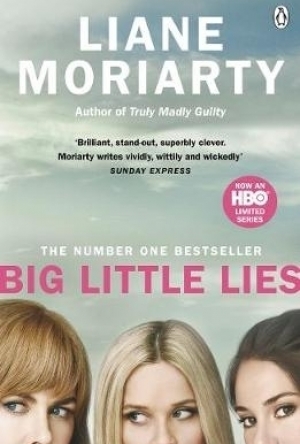
Big Little Lies
Book
Don't want Big Little Lies to end? Then why not order Liane Moriarty's new hit, Truly Madly...

